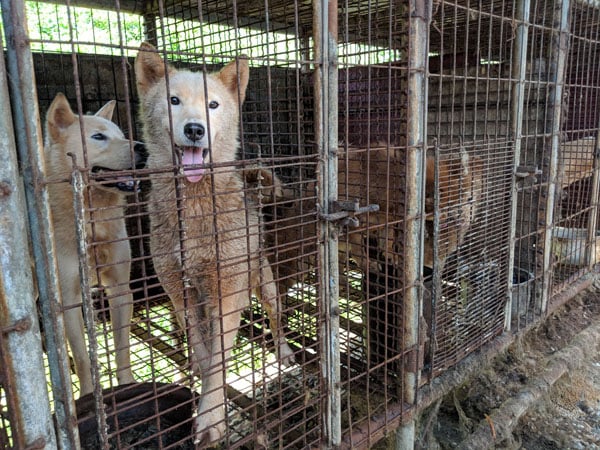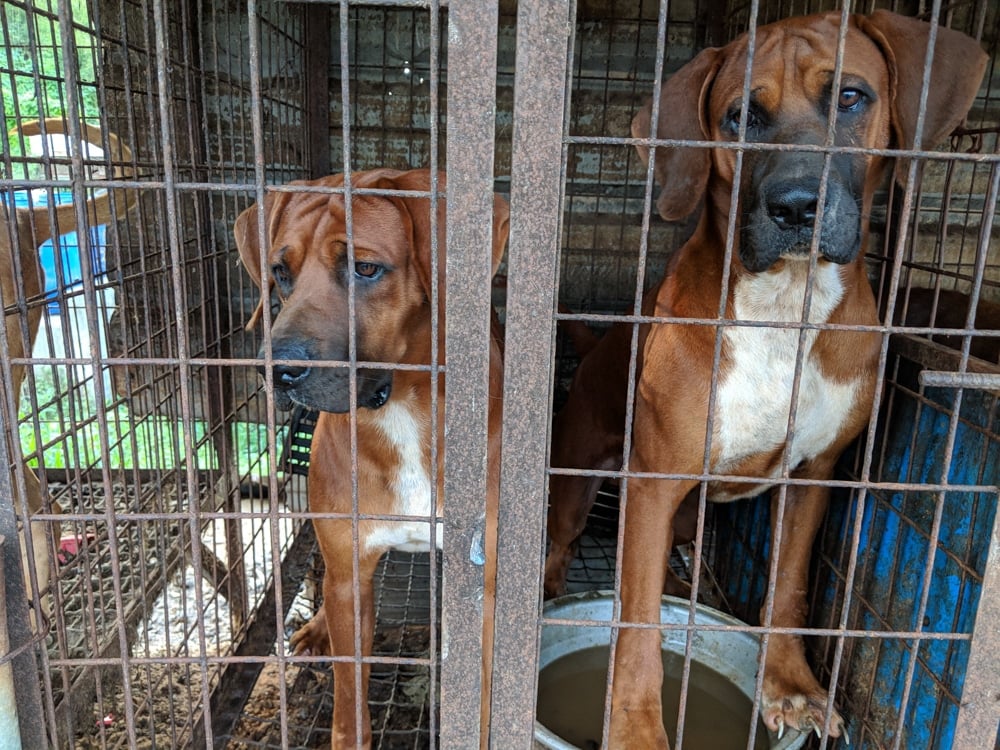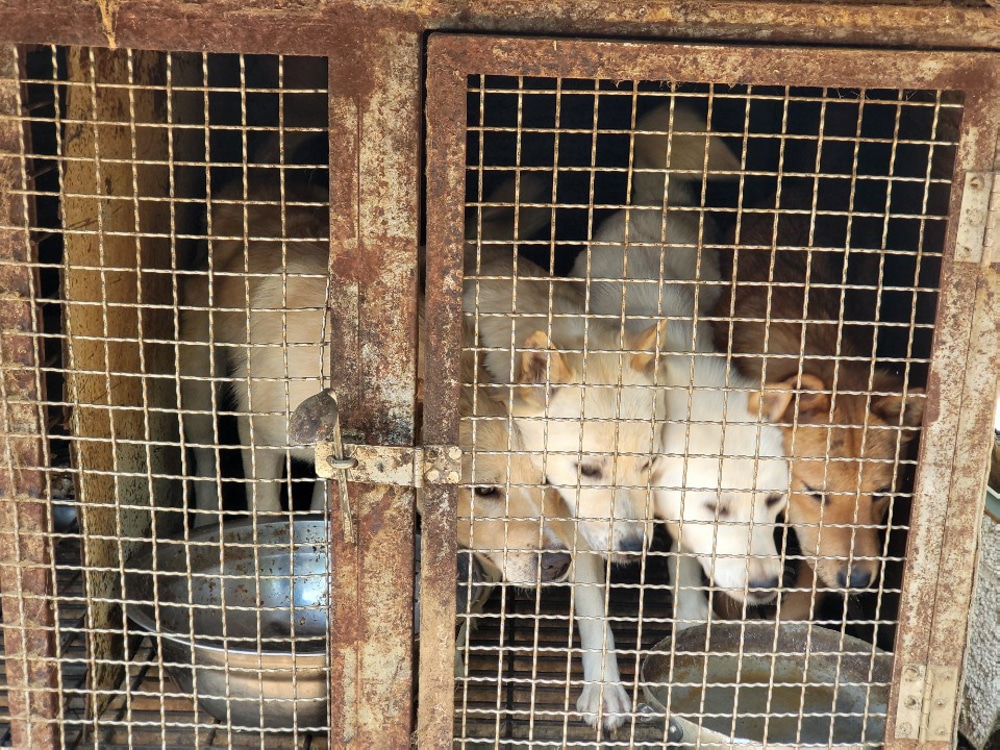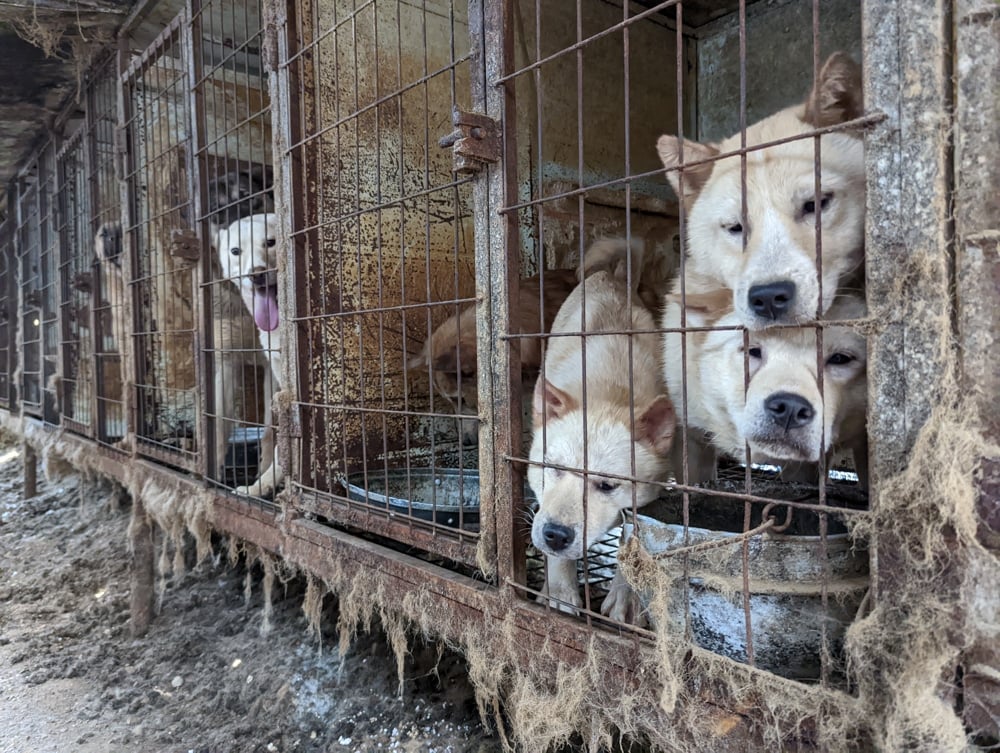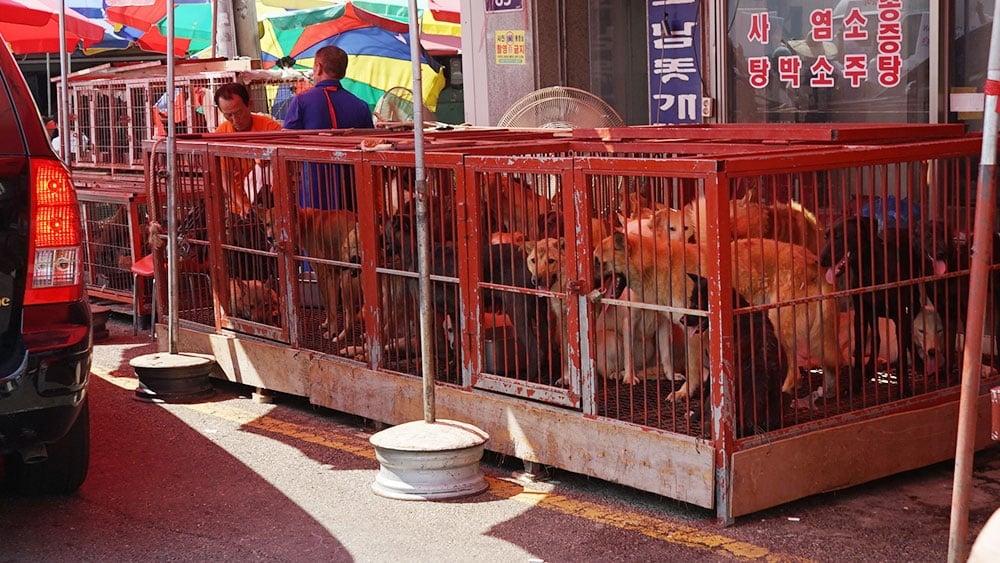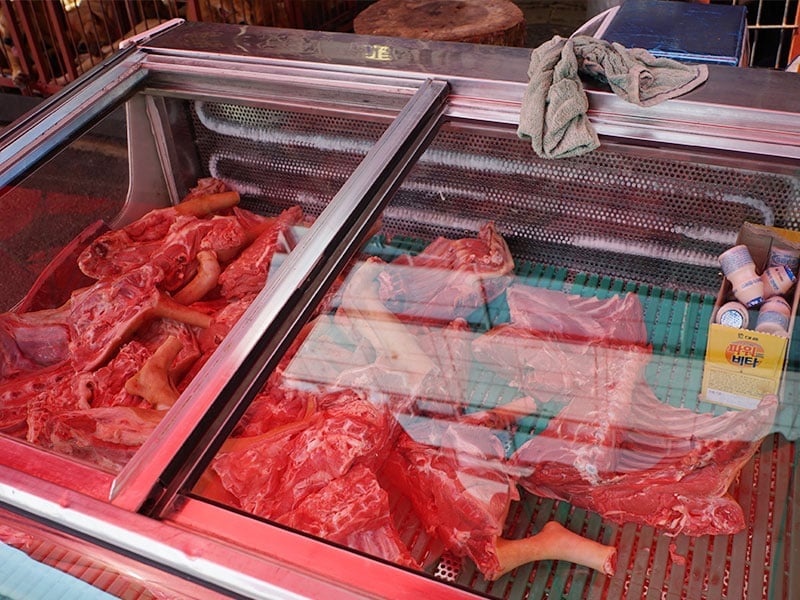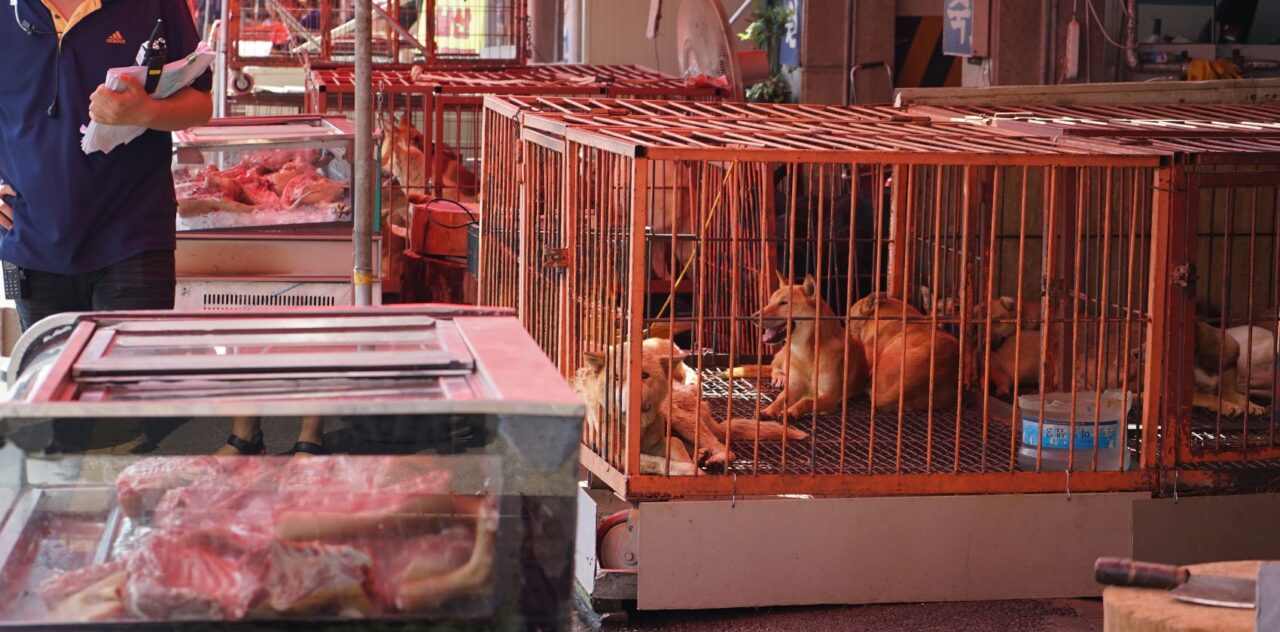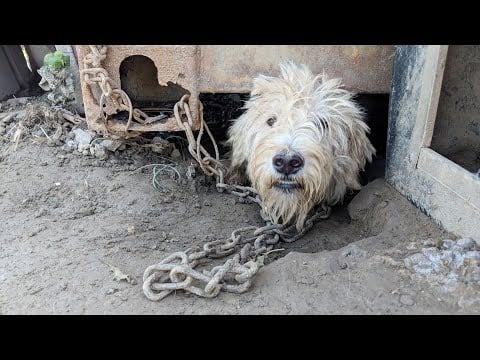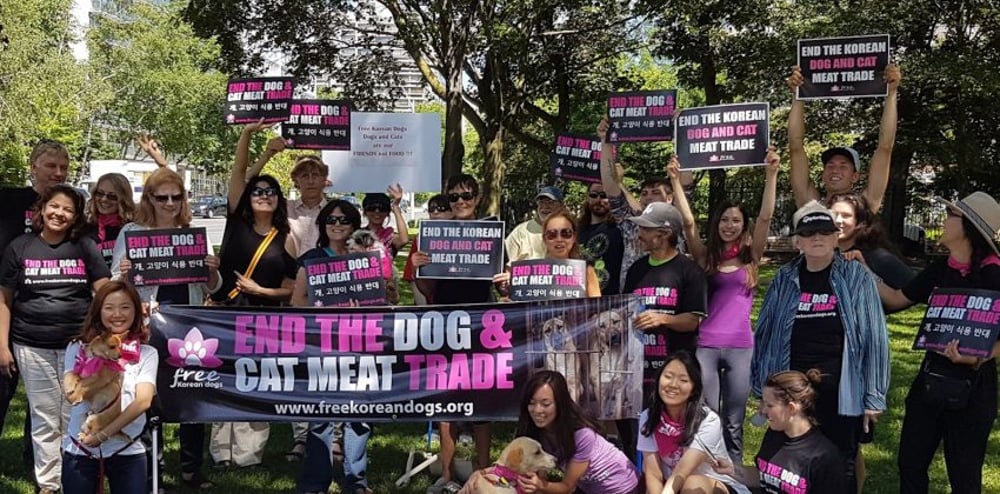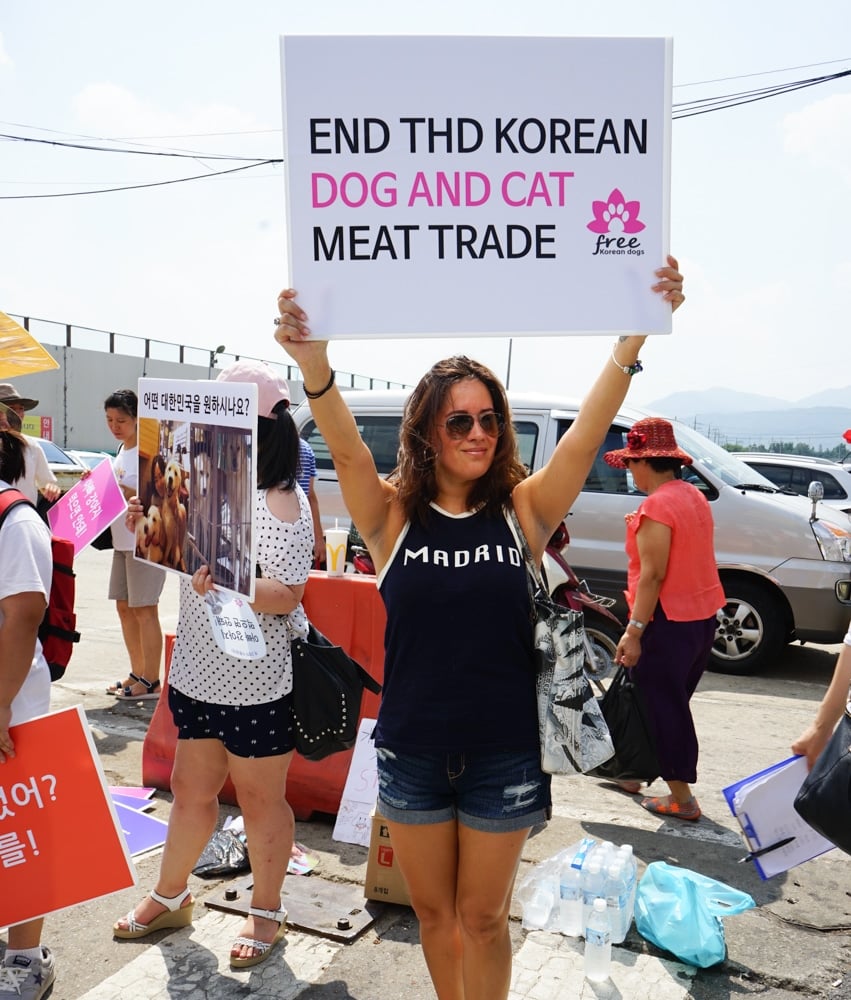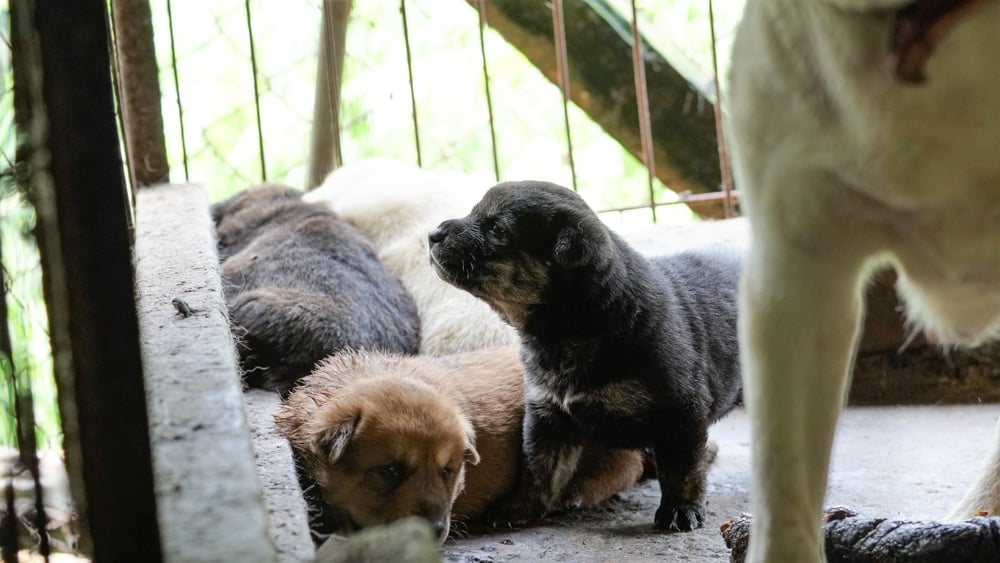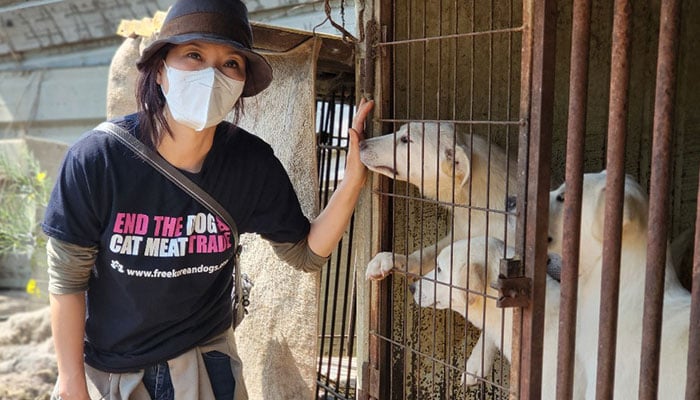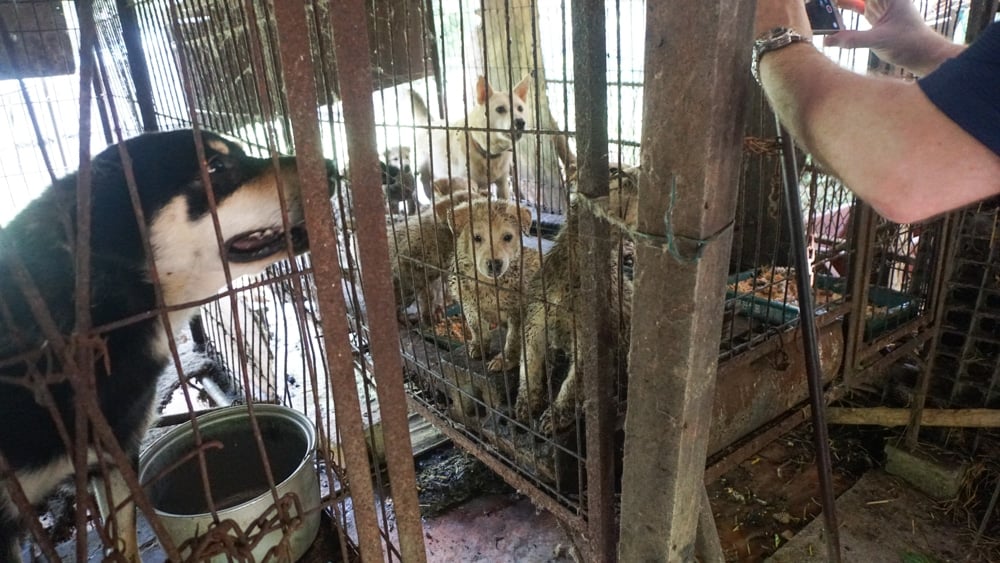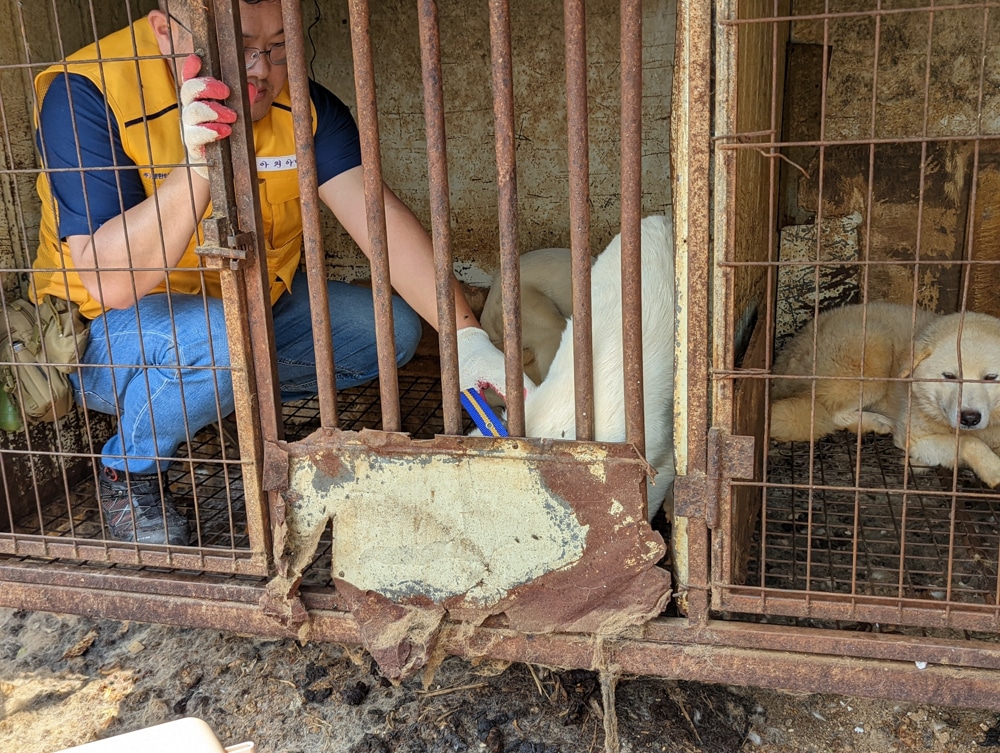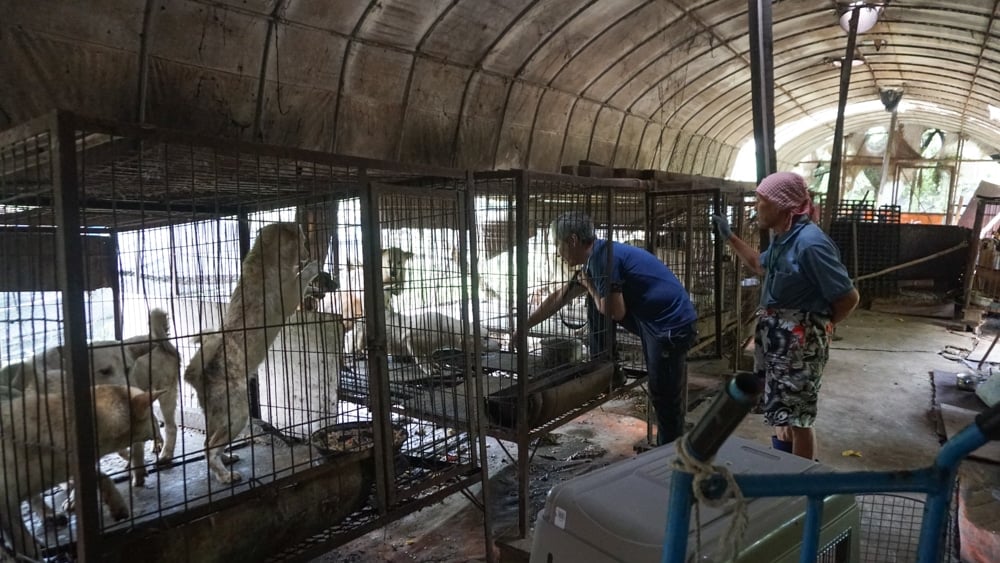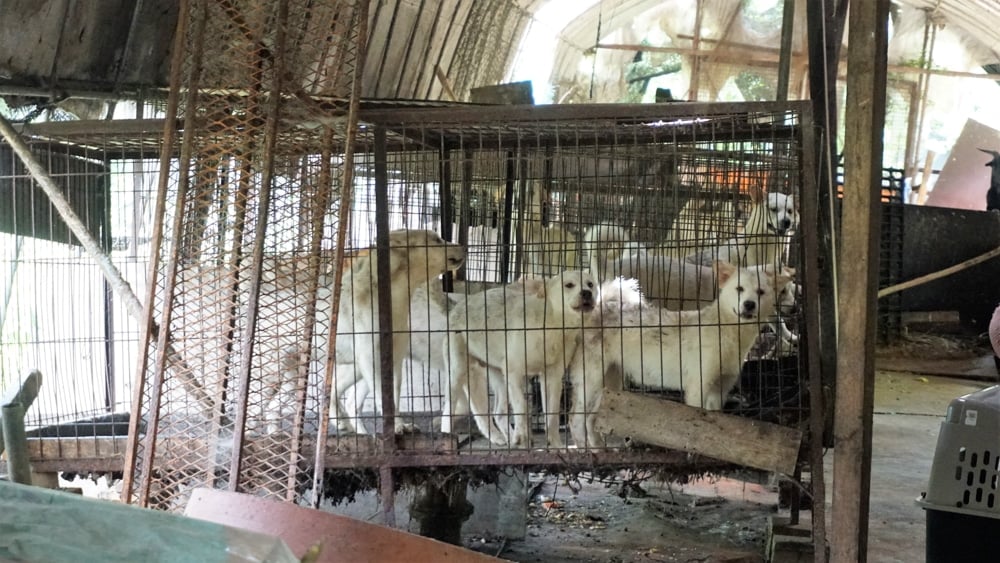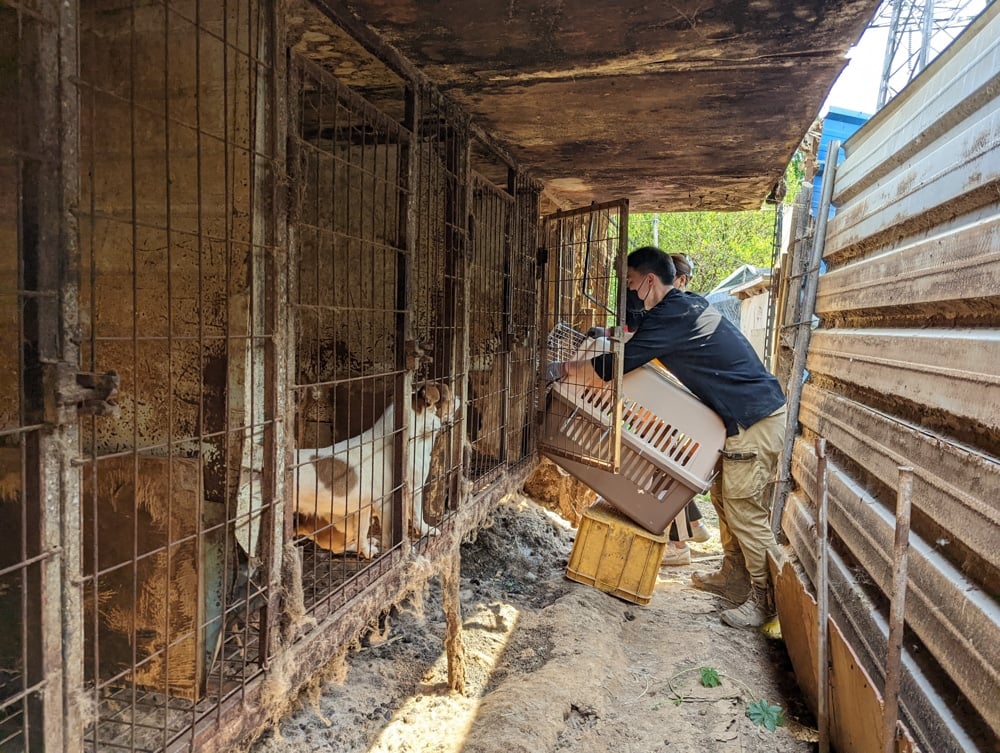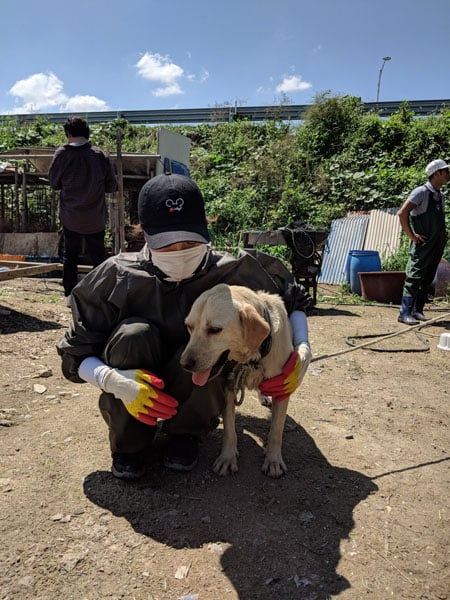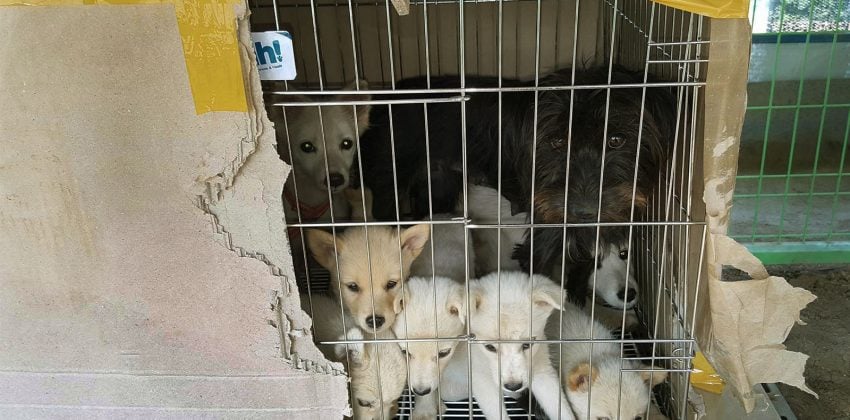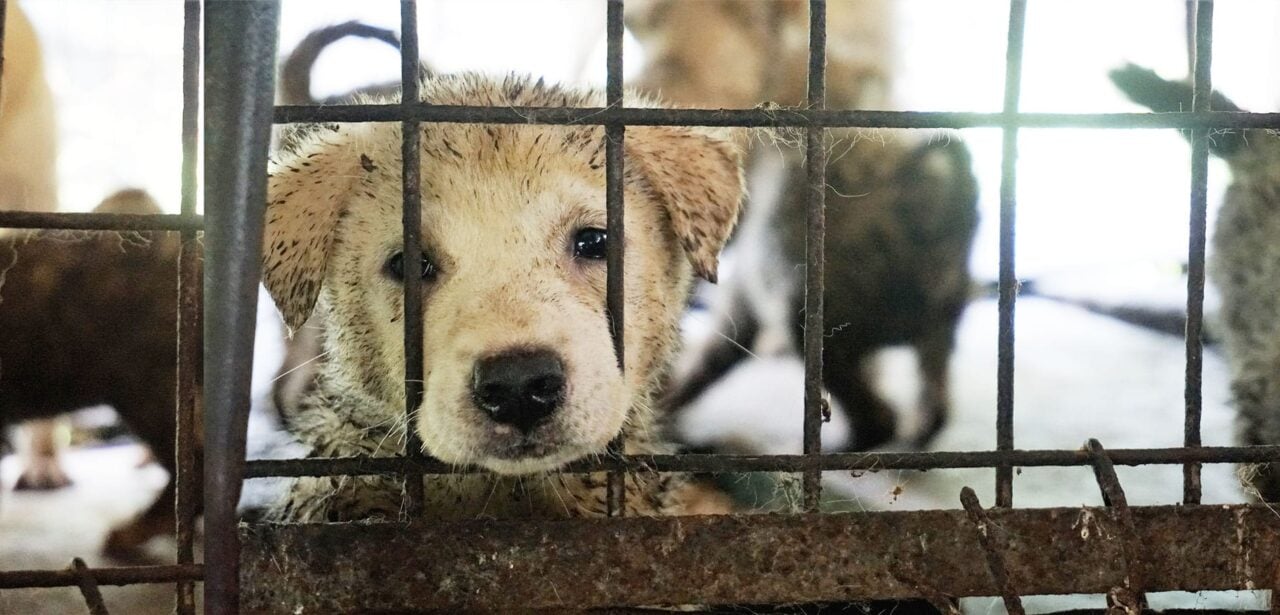The Ban on Dog Meat Trade and Its Challenges in South Korea
The Korean dog meat trade has long been a contentious issue that has captured global attention. For years, millions of dogs have been bred and slaughtered for their meat, sparking debates on cultural preservation versus animal welfare. While some advocate for its continuation as a cultural tradition, an increasing number of dog owners, citizens, and animal welfare activists have voiced opposition to this practice.
The recent landmark decision by the Korean government on January 9, 2024, to ban the dog meat trade represents a significant turning point. Set to take effect in 2027, this prohibition signifies a pivotal moment in addressing the longstanding issue.
In this article, we will explore the background of the Korean dog meat trade, assess the anticipated effects of the upcoming ban, and consider the challenges that may accompany its implementation.
A Cultural and Historical Exploration
Dog meat consumption in Korea is a complex issue intertwined with historical and cultural nuances. While the dog meat industry advocates for its preservation as a traditional custom, historical records reveal widespread dog meat consumption only gained traction after the 1960s. Traditionally, dogs in Korea held the primary role of houseguards rather than being viewed as a food source. Moreover, engaging in the dog meat trade carried a social stigma, and many considered dog meat unsuitable for consumption.
The shift towards increased dog meat consumption emerged around 1970 when dog meat soup was promoted for its perceived benefits in enhancing men’s stamina and energy levels. This promotion contributed to a surge in dog meat consumption until efforts were made to conceal dog meat restaurants during the 1988 Olympics. Despite these measures and international criticism, dog meat consumption persisted for several decades.
Dogs in Korea are sourced from farms in rural areas or mountainous regions, varying from small-scale operations with approximately 100-200 dogs to larger industrialized farms hosting thousands of dogs. These dogs are typically bred and raised in unhygienic conditions before being subjected to cruel slaughter methods.
The evolution of the dog meat industry from a seasonal tradition to a commercialized sector has led to the introduction of products like Gaesoju, a tonic crafted from dog meat and Chinese herbs. In addition to customary dog meat soup, various food items sourced from dogs have been introduced to enable year-round sales of such products.
Dog soup is primarily consumed during Boknals, the three hottest days in July and August. Many believe it aids in enduring the summer heat by consuming dishes like Bosintang (dog meat soup). This period sees a notable surge in the demand for dog meat, resulting in the slaughter of thousands of dogs for meat consumption.
Evolving Public Opinion, Activism, and International Pressure
The past few years have seen a notable shift in public opinion surrounding the dog meat trade in Korea. While some older Koreans continue to consume dog meat, the younger generation increasingly perceives dogs as family companions rather than food sources. Approximately 25% of Korean households have dogs as family companions. While this percentage is lower than the 35% dog ownership rate in Canada, it still represents a substantial number.
It was around 2015 when the inhumane practices of the dog meat industry started to be exposed on social media, with many young activists spreading the harsh reality online. This widespread sharing of such footage had a powerful impact, shocking many who viewed the disturbing scenes.
The active involvement of individuals and animal welfare organizations has been crucial in advocating for change. Through demonstrations and campaigns on both local and global platforms, these groups have urged the government to address the dog meat trade and implement reforms. Furthermore, the global community has united in condemning the Korean dog meat trade, with international animal welfare organizations denouncing its brutality and calling for its abolition.
The Path to the Ban
The journey towards banning the Korean dog meat trade has been long and complex. In recent years, legal measures were taken to regulate the industry. In 2018, South Korea passed a law banning the slaughter of dogs in public places and prohibiting the sale of dog meat at certain events. This initial step laid the foundation for further action.
In 2020, a landmark court ruling declared that killing dogs for meat was illegal under existing animal protection laws. This ruling set a precedent and paved the way for more substantial changes.
A Historic Shift: Ending the Dog Meat Trade
On January 9, 2024, a historic moment unfolded as the Korean government passed the Special Act prohibiting the dog meat trade from 2027. During the plenary session of the National Assembly, the Special Act garnered overwhelming support, with 208 members in favour and two abstentions out of 210 present, leading to its successful passage.
The legislation to eradicate dog meat consumption was warmly received in Korea.
Until now, dogs in Korea have been caught in a paradox where they are considered family companions yet are sacrificed for food. The exclusion of dogs from the livestock category under the Livestock Products Processing Act in 1978, while still being classified as livestock under the Livestock Act, has perpetuated breeding practices on dog farms, resulting in many dogs suffering in obscurity. This enduring contradiction, along with years of governmental neglect, has impeded the advancement of animal welfare standards and the enforcement of the ban on the dog meat trade.
A Closer Look at the Special Act
The main content of the Special Act is to prohibit the breeding, slaughter, distribution, and sale of dogs for food purposes. Key points include:
- Prohibition of breeding, slaughtering, distributing, or selling dogs for food consumption, including carcasses or meat.
- Slaughtering a dog for consumption can lead to imprisonment of up to 3 years or a fine of up to 30 million won ($30,305 CAD).
- Breeding, raising, or distributing dogs for consumption can result in imprisonment of up to 2 years or a fine of up to 20 million won ($20,203 CAD).
- Dog breeders, slaughterhouses, distributors, restaurant owners, and related parties in the dog meat trade must report their facilities and business details to local government authorities. The province or local government must assist in closing or transitioning reported businesses.
- County governors have the authority to issue orders for the closure of dog farms. If farm owners do not comply, county mayors can intervene by ceasing operations and shutting down the farm with government support.
Impacts of the Ban
The ban, set to commence after three years, is anticipated to spare thousands of dogs that would have otherwise been bred and slaughtered for meat. This initiative aims to foster a broader respect for animals across the country, with the potential to influence other industries and practices involving animals.
The change reflects a cultural shift towards viewing dogs as companions rather than livestock, aligning with global trends in animal rights advocacy. Additionally, the decision may enhance South Korea’s international standing, especially among Western nations critical of the dog meat trade, potentially leading to strengthened alliances with countries prioritizing animal welfare.
Challenges and Concerns
- Challenges in Cultural Shifts and Enforcement
While banning the Korean dog meat trade is undoubtedly a milestone achievement, many challenges lie ahead. Cultural attitudes and deep-rooted traditions may take time to change completely. It will be crucial to continue educating the public about animal welfare and promoting compassion towards all living beings. The ban may face resistance from those who view it as an infringement on their cultural practices. Some individuals may continue to consume dog meat illegally or attempt to bypass regulations, posing challenges to enforcement efforts. - Support Systems for Transitioning Industries
One of the most pressing challenges is the need for comprehensive support systems for those directly affected by the ban, such as dog farmers and dog meat restaurant owners. The government and animal welfare organizations must work together to provide retraining programs, financial aid, and other resources to help these individuals find sustainable, alternative livelihoods. Without viable alternatives from the government, the dog meat industry is likely to persist. The fines may not serve as a sufficient deterrent, as they are not perceived as significant enough to compel compliance. - Enforcement Challenges in the Dog Meat Ban
Enforcing the ban on the dog meat trade is a big challenge. Some illegal trading and hidden slaughterhouses may still operate, so we must watch closely, enforce the law effectively, and impose strict penalties for breaking the rules. Although the Special Act gives power to local authorities like the county mayor, it’s their choice whether they follow through. Some may not bother to enforce it appropriately. Since local businesses and governments often have close ties, it’s essential for people to not only keep an eye on illegal activities but also make sure that local authorities use their power to shut down dog meat operations as required. - Uncertainty Looms for Dogs in Dog Farms
In the three-year grace period leading up to 2026, the fate of dogs in dog farms remains uncertain. Industry participants will likely attempt to maximize their benefits during this transitional phase, as the government has not laid out detailed plans and appears to leave the decision-making to those within the industry. - Challenges and Concerns for Dogs Post-2026 Ban
A critical concern arises regarding the future of dogs post-2026 following the ban on the dog meat trade. Official government data published in the Korea Times suggests that around 1200 registered dog farms exist. However, experts believe the actual number could be two to three times higher, potentially leaving over 200,000 dogs in need. This situation will lead to an overflow of dogs requiring homes and care, posing challenges for shelters and rescue organizations. Securing adequate funding, resources, and adoptive families is vital to address this influx and ensure the well-being of these animals. Despite the pressing need, there is a severe lack of resources for these dogs. Some animal welfare groups have suggested euthanizing dogs from dog meat farms as a final solution to address the challenges. While this suggestion may seem harsh, animal welfare and rescue efforts in Korea have heavily relied on individual and private group initiatives, with minimal government support. Finding suitable accommodations and caregivers for these dogs presents a significant challenge that has proven to be highly challenging thus far.
Conclusion
The ban on the dog meat trade marks a significant milestone in Korean animal welfare history, achieved through the efforts of citizens, activists, animal welfare groups, and global advocacy. Yet, Korea is in the early phases of the shift away from dog meat consumption.
The upcoming March 2027 presidential election will be instrumental in deciding whether the new government will stand by and implement the ban, faced with opposition from entities like the Korean Dog Meat Association.
As the realization of the ban on the dog meat trade is our collective dream, we must diligently monitor the actions of governmental bodies and industry stakeholders. Free Korean Dogs will continue monitoring their activities closely, focusing on dog rescue and public awareness. The journey toward eliminating the dog meat trade in Korea may encounter hurdles, but unwavering commitment and collective efforts will pave the way. Our goal to end the Korean dog meat trade is finally in sight!
Subscribe for Updates
Get our dogs in your inbox once a month, along with our latest news and events. We never send spam, and you can opt out at any time.

